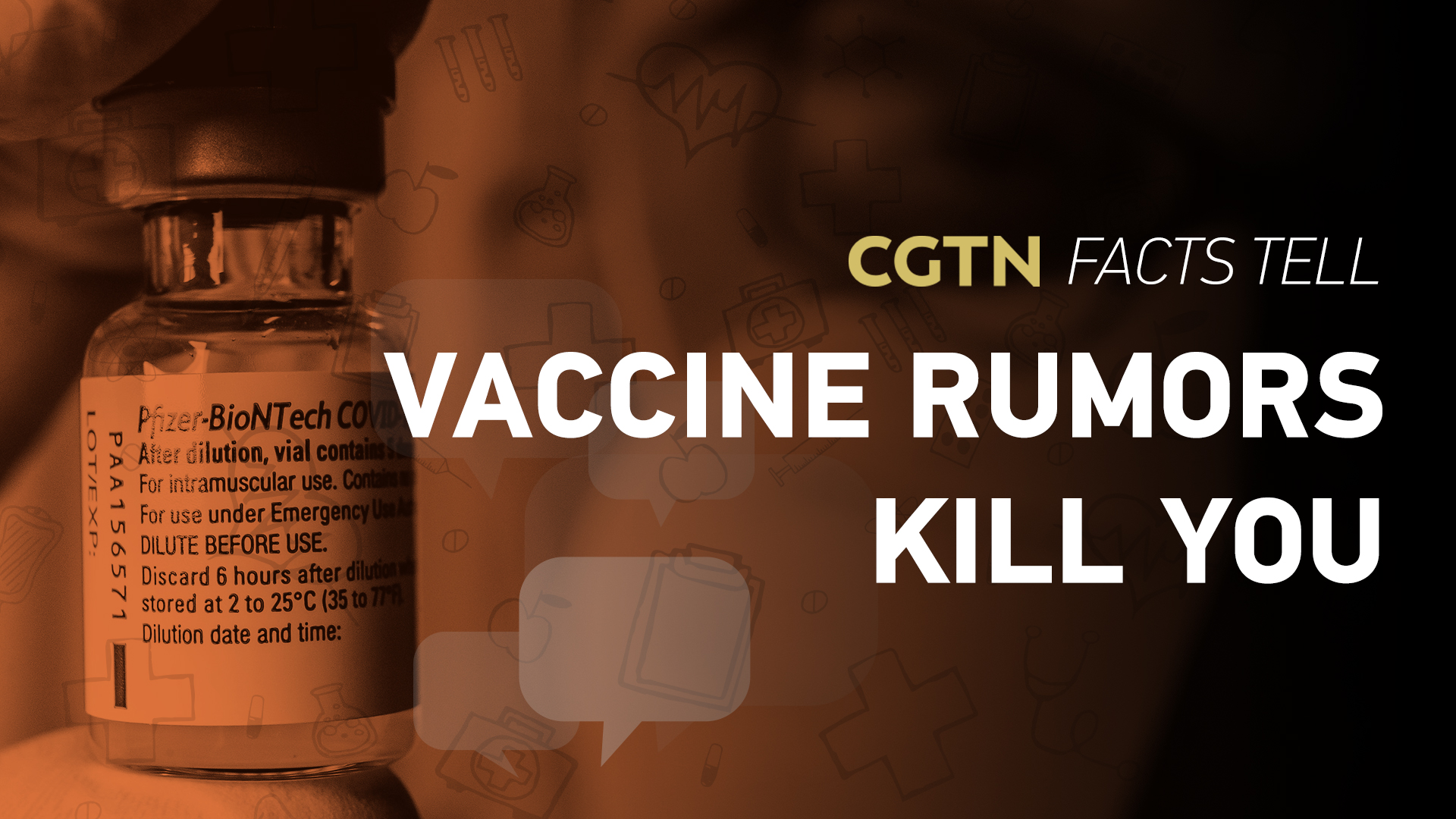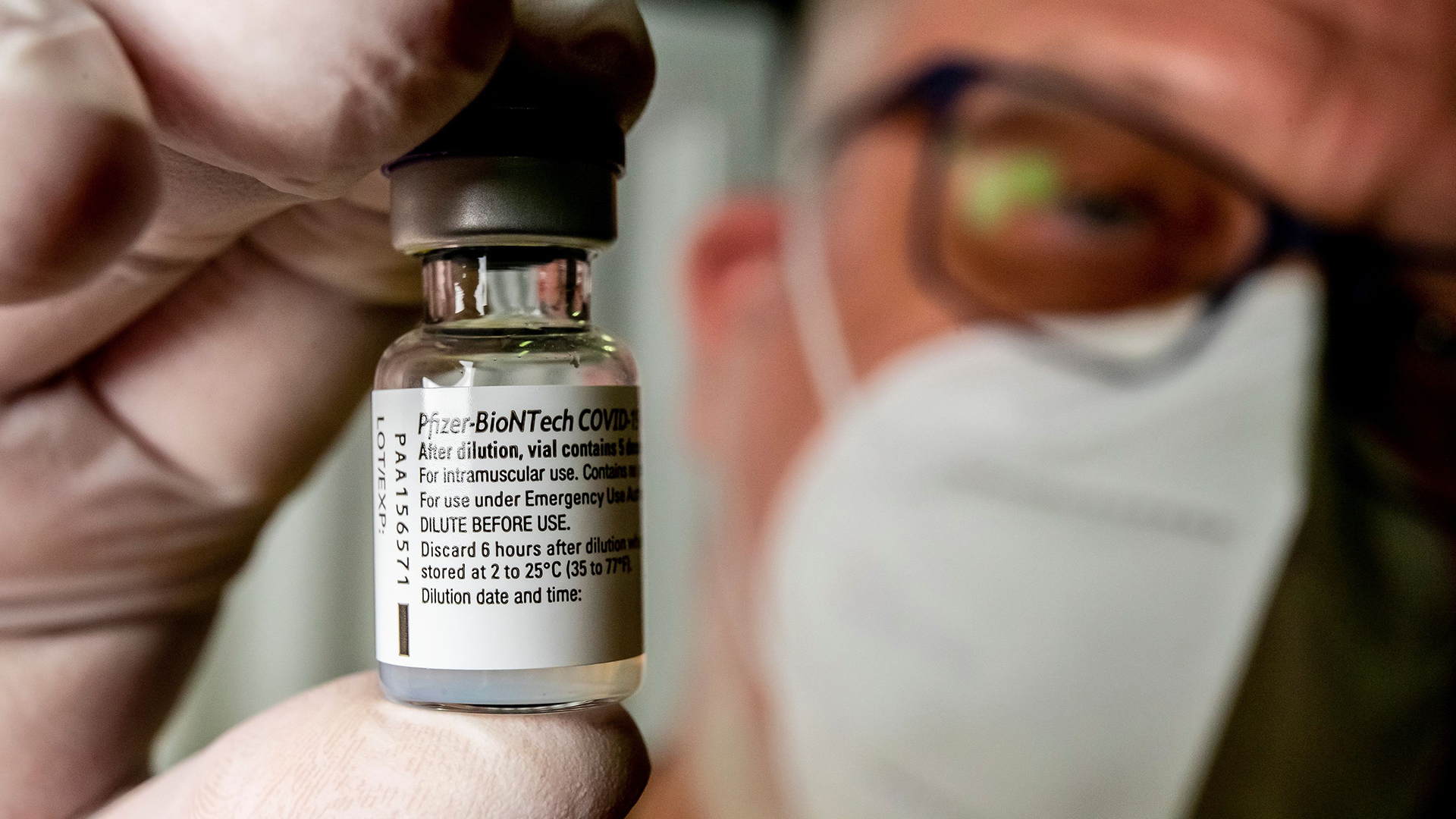05:06

The fast spread of unverified information on social media has become a huge problem in recent years. But now more than ever, spreading misinformation during a pandemic could very well be a matter of life and death.
The first batch of the COVID-19 vaccine is now being distributed and in order to reach herd immunity, around 70 percent of the population would need to be vaccinated. However, numerous anti-vaccine rumors are getting in the way.
To stop this "infodemic" amid a pandemic, we must know what those false claims are and how they're being transmitted.
1998: Measles vaccines and autism
One of the earliest types of misinformation about vaccines was surrounding autism.
In 1998, a British doctor named Andrew Wakefield published his work in a high-level medical journal, the Lancet, claiming a link between the measles vaccines and autism.
Although the journal had retracted Wakefield's paper due to ethical breaches and dishonesty, the vaccine's reputation had been permanently tainted, and millions of followers continue to believe the autism connection to this day.
Rumors swirl about COVID-19 vaccines

A member of the ASB (Arbeiter-Samariter-Bund) presents a vial with Pfizer-BioNTech COVID-19 vaccine at a vaccination center in Bad Windsheim, Germany, December 26, 2020. Hannibal Hanschke/Reuters
A member of the ASB (Arbeiter-Samariter-Bund) presents a vial with Pfizer-BioNTech COVID-19 vaccine at a vaccination center in Bad Windsheim, Germany, December 26, 2020. Hannibal Hanschke/Reuters
In 2020, as the world hangs its hope that a coronavirus vaccine will be the ticket out of the crisis, misinformation is once again rampant, targeting its safety, efficacy, and necessity.
For example, a Facebook post claims that the coronavirus vaccine is an RNA vaccine that will change people's DNA. An Instagram post warns the public that it contains aborted babies, which will make people infertile. On Twitter, one post goes so far as to suggest that reactions to the vaccine can kill more people than the virus.
All these claims are problematic. Some COVID-19 vaccines use the mRNA technology, but mRNA works by instructing cells, not altering DNA. "Aborted babies" are not covered by COVID-19 vaccines, and there is no evidence that the vaccination affects a woman's fertility. And COVID-19 vaccines are made to protect us.
These false and unverified statements could easily be read by and shared with many people and fuel the anti-vaccination rhetoric.
Misinformation is born out of fear and distrust
Misinformation plays on our fears.
You may be retweeting a post out of pure goodwill: to protect friends and family from some kind of danger. But just as Wakefield's paper had misled many parents into thinking that vaccines are unnecessarily risky for their children, it did more harm than good when the information turned out to be wrong.
To make matters worse, public trust is now falling in many countries.

Dr. Anthony Fauci speaks with Health and Human Services Secretary Alex Azar before receiving his first dose of the new Moderna COVID-19 vaccine at the National Institutes of Health, in Bethesda, U.S., December 22, 2020. Pool via Reuters/Patrick Semansky
Dr. Anthony Fauci speaks with Health and Human Services Secretary Alex Azar before receiving his first dose of the new Moderna COVID-19 vaccine at the National Institutes of Health, in Bethesda, U.S., December 22, 2020. Pool via Reuters/Patrick Semansky
People have spoken out about their distrust of politicians and experts. Even Dr. Anthony Fauci, one of the most prominent scientists during the pandemic, had faced serious life threats to his family and himself.
General distrust in authorities has led many people to believe claims, even bizarre ones, made against authorities.
False rumors then become harder to dispel.
Misinformation transmits faster
Unfortunately, false claims about the coronavirus vaccine and anti-vaccination messages often travel faster and more widely than the facts.
Neil Johnson, a physicist at George Washington University, and his team studied online vaccine information on Facebook. They analyzed conversations about vaccines on the Facebook pages of 100 million people worldwide. The study suggests that anti-vaccination groups tend to be smaller but are more active in pestering undecided groups.
Their research found that the anti-vaccination pages have fewer followers, but there are more of them than the pro-vaccination pages. In the paper they published on the Nature, Johnson and his team suggest that anti-vaccination groups dominate the discussion networks and are "heavily entangled with a very large presence of undecided clusters," while the pro-vaccination discussions "may remain ignorant of the main conflict and have the wrong impression that they are winning."
This means that people who are unsure whether they will accept the vaccine, such as parent associations in schools, are more likely to be influenced and persuaded on social media by anti-vaccine messages than by pro-vaccine messages.
In other words, anti-vaccination groups are more likely to win on the battlefields.
At the same time, their paper also says that anti-vaccination groups offered a wide range of engaging narratives, including "safety concerns, conspiracy theories, and alternative health and medicine," while pro-vaccination groups are "monothematic."
Johnson and his team then concluded that all these characteristics led to the fastest growth of anti-vaccination groups during the 2019 measles outbreak – some groups increased by more than 300 percent – while most of the pro-vaccination groups grew by less than 50 percent.
Here's a message from anti-vaxxers: "Research yourself. Be informed, not tricked."
The same message applies to everybody and, in fact, is encouraged by scientists and leaders. The challenge is how to make pro-vaccination messages more attractive and persuasive. During a pandemic, vaccination is no longer a purely medical issue but a matter of effective communication.
And this time, we're making progress.
Dr. Fauci is telling kids Santa has been vaccinated; world leaders are rolling up their sleeves in front of the camera; journalists and newspapers are alert to misleading headlines.
Let's keep fighting this battle of science and communication. And always remember: research yourself, be informed, not tricked.

